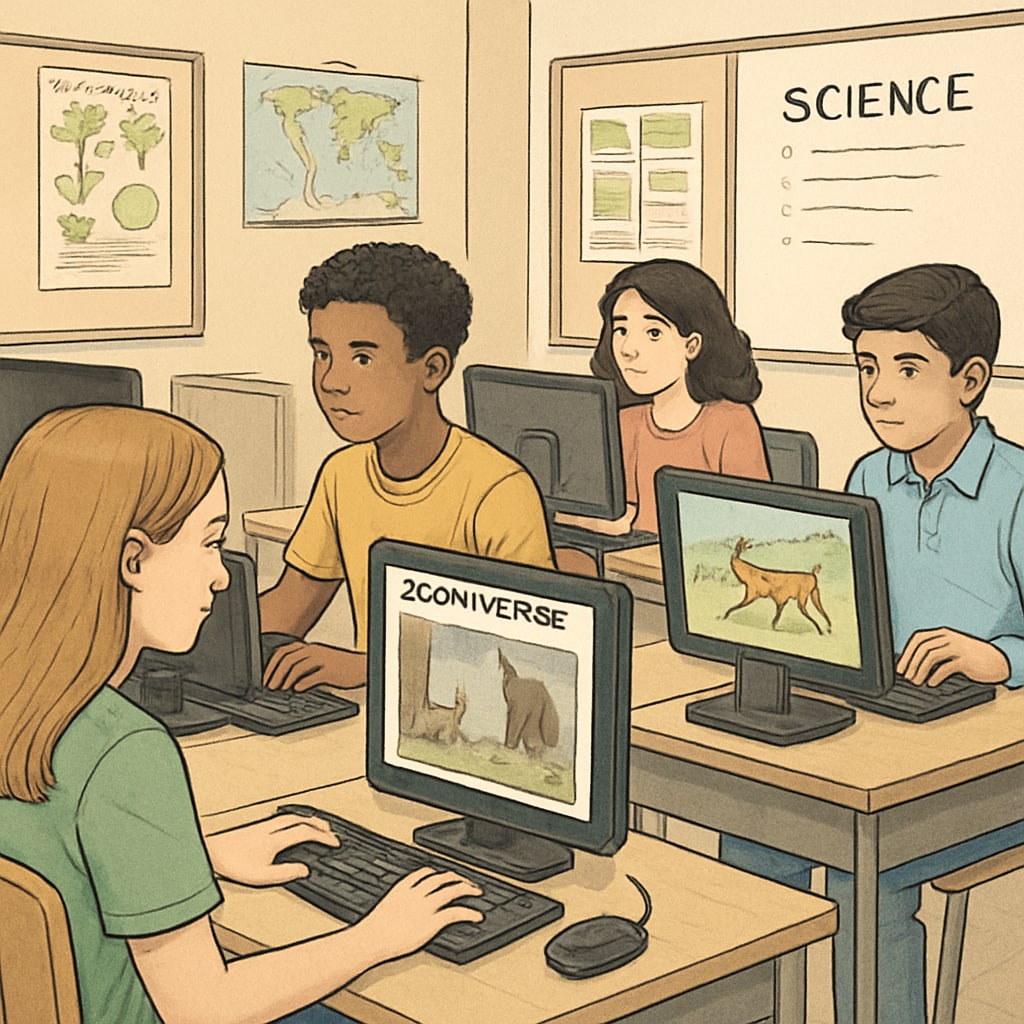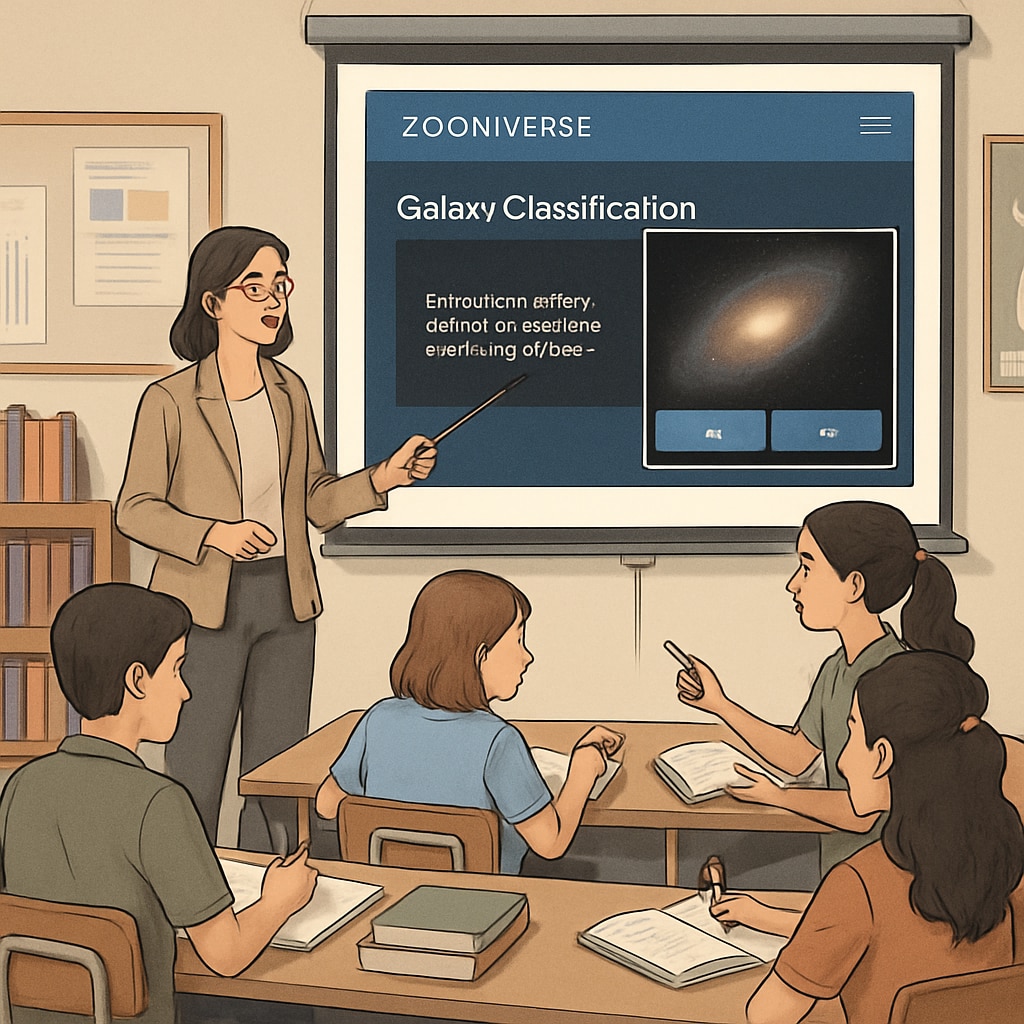Citizen science, Zooniverse, and real-world science projects are transforming how K12 students engage with learning. Zooniverse, one of the largest platforms for citizen science, offers students the opportunity to dive into authentic research experiences. From identifying galaxies to tracking wildlife populations, students can contribute to meaningful projects that foster scientific literacy and curiosity. This article explores how educators can integrate Zooniverse into their classrooms to inspire the next generation of scientists.
What Is Zooniverse and Why Is It Revolutionary?
Zooniverse is a global platform that connects volunteers with research projects in fields ranging from astronomy to ecology. The platform allows individuals, regardless of their scientific background, to contribute to ongoing studies by performing tasks such as classifying images, transcribing historical documents, or analyzing data. As a result, complex research efforts are accelerated by the collective efforts of citizen scientists.
What makes Zooniverse revolutionary for K12 education is its accessibility and real-world relevance. Students can engage directly with cutting-edge projects, learning about scientific methods while making tangible contributions to global research. For example, in the project Mapping Mars, students can help identify surface features on the Red Planet, fostering interest in space exploration.
Moreover, Zooniverse projects are designed to be intuitive, making them suitable for diverse age groups and skill levels. This ease of use, combined with the platform’s alignment with STEM (Science, Technology, Engineering, and Mathematics) learning objectives, makes it an ideal resource for K12 classrooms.

How to Incorporate Zooniverse into the Classroom
Integrating Zooniverse into your classroom requires thoughtful planning to maximize its educational impact. Here are some steps to get started:
- Choose the Right Project: Select a project that aligns with your curriculum. For example, biology classes might explore wildlife tracking projects, while astronomy classes can focus on galaxy classification.
- Set Clear Objectives: Define what you want students to learn, such as data analysis skills, teamwork, or understanding of specific scientific concepts.
- Provide Guidance: While Zooniverse projects are user-friendly, students may need initial instructions on how to navigate the platform and complete tasks.
- Foster Discussion: Encourage students to share their findings and reflect on their contributions to the broader scientific community.
For example, the project Zebra Tales allows students to analyze images of zebras, contributing to wildlife conservation while learning about ecosystems and data collection. Such experiences not only build scientific skills but also emphasize the importance of collaboration and global citizenship.

Benefits of Citizen Science for K12 Students
Engaging with citizen science projects like those on Zooniverse offers numerous benefits for K12 students:
- Hands-On Learning: Students apply theoretical knowledge to solve real-world problems, making learning more engaging and practical.
- Skill Development: Projects enhance critical thinking, data analysis, and digital literacy skills.
- Global Perspective: Participation in international research fosters a sense of connection to the global scientific community.
- Inspiration: Real contributions to science can ignite long-term interest in STEM careers.
As a result, students not only gain academic knowledge but also develop a deeper appreciation for the impact of scientific research on society and the environment.
Conclusion: Nurturing the Next Generation of Scientists
Citizen science, Zooniverse, and the integration of real-world projects into K12 education offer a powerful way to engage students in meaningful learning. By participating in Zooniverse projects, students gain hands-on experience, enhance their scientific literacy, and discover the excitement of contributing to global research efforts. For educators, this platform is a valuable tool to inspire curiosity and foster a lifelong passion for science.
Whether your students are mapping the stars or studying animal behavior, Zooniverse provides a gateway to the world of scientific discovery. Start exploring its diverse projects today and watch your students transform into citizen scientists eager to make a difference.


